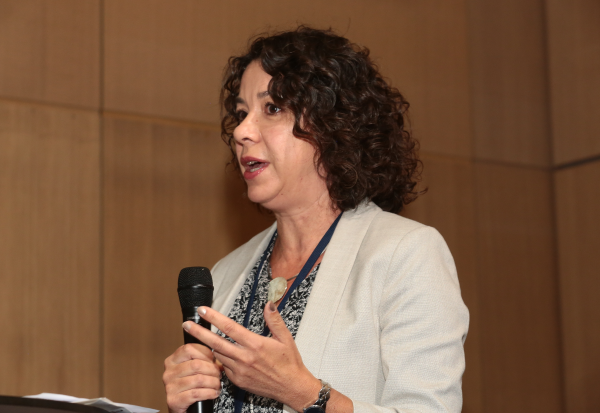Swiss VET highlighted at BIBB Congress 'Future Skills – Thinking about Progress'
Germany will require far more skilled workers than are currently available if it is to tackle the challenges facing society today - digitalisation, the energy transition, climate change and sustainability. Over 1,000 policymakers, researchers and VET professionals met at the Federal Institute for Vocational Education and Training (BIBB) in Bonn at the end of October to find possible ways of addressing this shortage of skilled workers. The Swiss model was seen as a positive source of inspiration.
Dual-track vocational education and training makes an indispensable contribution to economic, societal and social development. However, vocational pathways in Germany have undeniably lost some of their appeal in recent years. Among other things, this has led to a significant decline in the number of apprenticeship contracts. And this trend was further exacerbated by national restrictions taken in response to the coronavirus pandemic. To address the current situation, the BIBB congress was structured into eight 'thinking spaces', each devoted to a specific topic. This enabled multi-facetted group discussions of the opportunities and prospects for vocational education and training in Germany.
Our partners value Swiss VET expertise
A good example was Thinking Space 4 ('Equivalence'), where it was suggested that a skilled labour “catastrophe” could be avoided by encouraging greater social recognition of the equivalence of academic and vocational pathways. Relevant stakeholders from educational, policymaking and business spheres discussed this topic in a lively format, which included verification of facts and input from real-world experts. Data from BIBB projections on future demand for skilled labour and analyses of academisation trends were also covered. Dr. Sonja Engelage represented Switzerland's perspective on the factors that help to strengthen vocational education and training. She illustrated her points using a video that had been specifically produced at SFUVET for this purpose.
In the later discussions, Switzerland was mentioned as a prime example of how the appeal of vocational education and training can best be maintained. The German representatives expressed their support for a multi-pronged solution: enacting legislation to legally anchor equivalence of education and training pathways; launching recurring promotional campaigns; and, crucially, garnering strong political support and recognition of the importance of vocational pathways. On the subject of national qualifications frameworks, not all of the participants agreed that legally anchoring Germany's NQF would make its vocational education and training system stronger.






